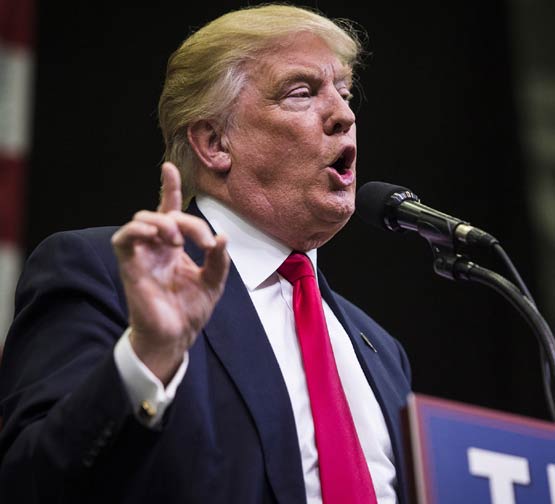 Jabin Botsford/The Washington Post
Jabin Botsford/The Washington Post
Donald Trump was supposed to take over the Republican Party, but the question going forward will be whether the Republican Party takes over him.
So far, the early legislative agenda of Republicans after the Trump revolution is shaping up to be exactly what you would've expected prior to the Trump revolution. It's a cookie-cutter GOP program that any Republican who ran for president in the past 40 years would feel comfortable signing, with its prospective centerpiece another round of across-the-board tax cuts.
It's not that Trump didn't campaign on all of this over the past year. His candidacy combined utterly conventional Republican positions with a few signature policy heterodoxies and a flame-throwing populist message. If it's comforting that he doesn't seem intent on going to war with his own party in Washington, the opposite risk is that he loses some of his political distinctiveness in the grinding legislative wars to come.
This is why the Democratic approach to Trump so far, besides being insane, is wrongheaded. The Democrats are preparing to fight what they consider a kleptocratic handmaiden of Vladimir Putin in the Oval Office, an unprecedented threat to the American republic that justifies cockamamie schemes like calling for the Electoral College to ignore the results of the election.
There is no doubt that Trump is unlike any prior president. But if Democrats begin thinking and acting a little more rationally, they will in all likelihood find their opposition to Trump running in a reassuringly familiar rut - Republicans are heartless tools of corporations and the wealthy. They don't care if people lose their health insurance. They are cutting taxes for the rich. They are deregulating bankers. Etc., etc.
This is the critique that Hillary Clinton didn't make of Trump, opting instead to emphasize his outlandishness and try to separate him from his party. In this vein, liberals are now resisting "normalizing" Trump, when they should be perfectly content to normalize him - specifically, to make him a normal Republican.
Then there's the congressional agenda. The early indications are that Republicans will pass a partial repeal of ObamaCare out of the gate that could further destabilize the law's rickety exchanges and lead to people losing their insurance.
Congressional Republicans tell themselves that they can blame the misconceived law itself for any negative fallout, but this will be a hard sell. For the first time in the course of the long ObamaCare debate, they will be the ones responsible for disruption in the health-care market.
Next, congressional Republicans want to move on to large-scale tax reform. The starting point will likely be House Speaker Paul Ryan's already well-developed plan for across-the-board income-tax cuts and a lower corporate-tax rate. For all its merit, Ryan's reform could've been incubated by any conservative think tank before anyone imagined Trump might run for president, let alone win.
What's the point in having a populist Republican in the White House if congressional Republicans can't find a way to couple some replacement measures with their ObamaCare repeal to give people other options for getting health insurance?
Trump actually talked of "taking care of everybody" when he was asked about health care during the campaign. That will be thrown back at him like President Obama's promise that you can keep your plan if you like your plan.
Or if congressional Republicans can't make their tax plan more oriented toward the middle class, perhaps including a cut in payroll taxes?
All of this is subject to change, and Trump can potentially blow up the best-laid plans of congressional Republicans with one tweet or a swipe in a TV interview or at a rally. Of course, Trump will be heard from on infrastructure, trade and immigration, where he is in a different place than much of his party.
Neither wing of the GOP may like it, but the Reaganites and the populists are now in an uneasy alliance. It behooves the champions of a highly traditional Republican platform to think about what Trump's victory means and to be more mindful than in the past of the interests of working-class voters.
And it behooves Trump the firebrand to consider the responsibilities of governing (as he has by, for instance, jettisoning the crowd-pleasing call to lock up Clinton).
There is a balance to be struck. The Republican establishment may welcome a more "normal" Trump, but so, in the end, will Democrats.
Comment by clicking here.


 Contact The Editor
Contact The Editor
 Articles By This Author
Articles By This Author